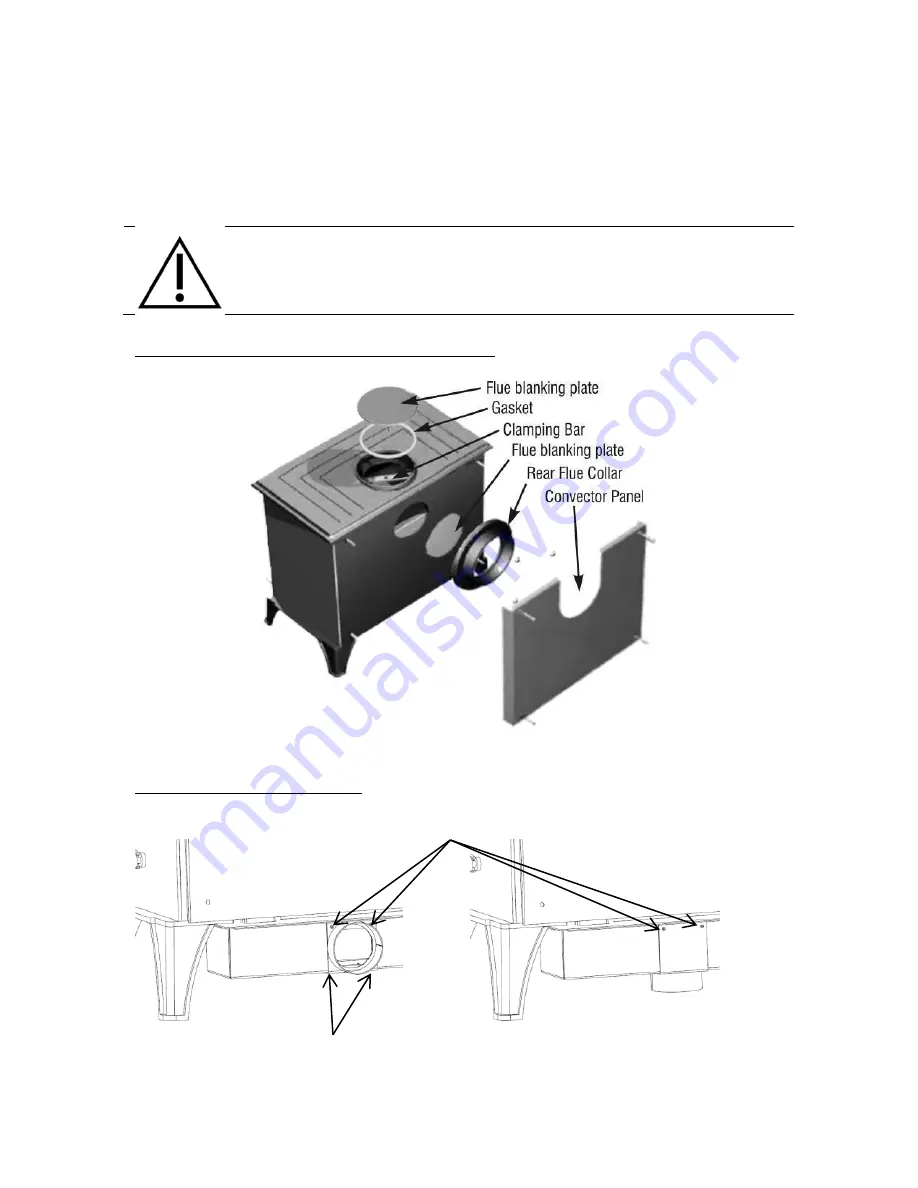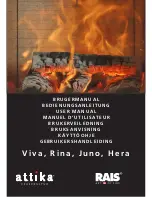
Page 8
AB-8kW-I03-191213
5.
Check the appliance for soundness of seals between castings and main components
and that all supplied parts and fittings are correctly fitted.
On completing the installation, check that all the internal components of the stove are
positioned correctly.
Check - Ashpan, iron grate, baffle, side and back bricks.
Leave the appliance operational and explain the operation of the stove
to the customer. Leave all instructions and operating tools with the
customer.
Fig. 4 – Arranging the Flue for Top or Rear Outlet.
Fig. 5 – Positioning the Air Inlet
Screws holding air inlet bracket.
Screws holding air inlet bracket


































